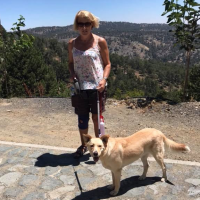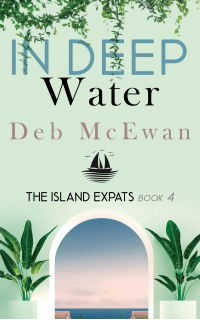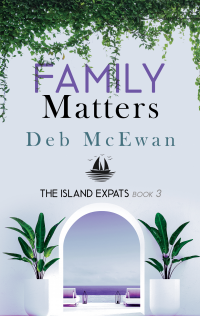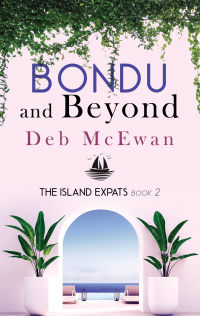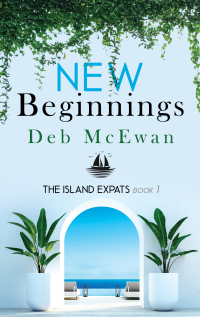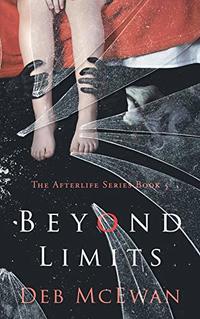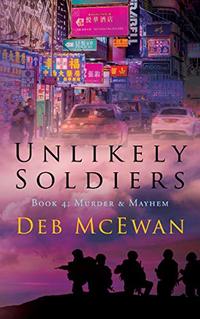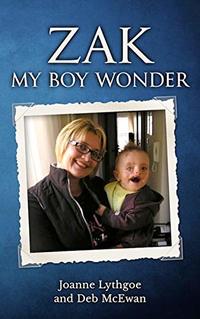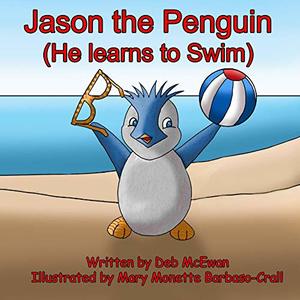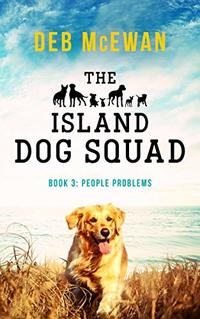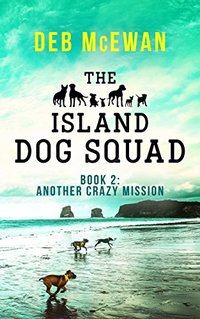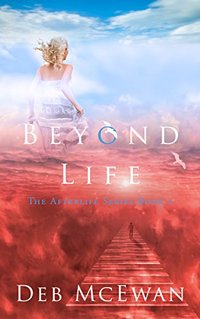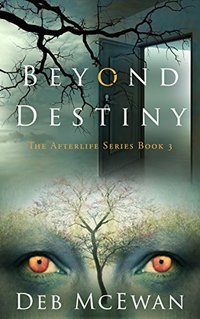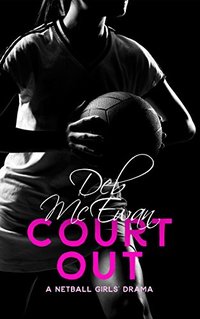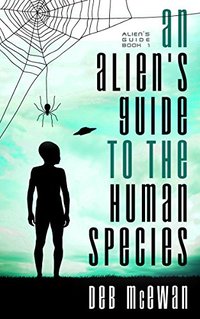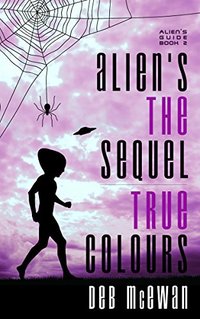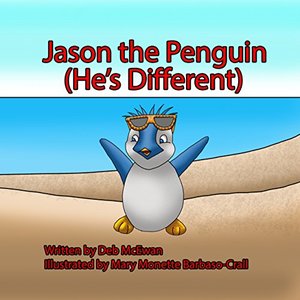Deb McEwan Interview Published on: 27, Mar 2018
 Can you tell us a little bit about where you grew up and what your childhood was like?
Can you tell us a little bit about where you grew up and what your childhood was like?
I was born and raised in Pontypridd, South Wales during the 60s/70s. We didn’t have much money but had plenty of fun. My two older brothers joined the Army in their teens. We didn’t know any girls who had joined the Army so when I said I wanted to, my family tried to talk me out of it. I messed about in school and left with few qualifications. I didn’t want a dead end job and longed to travel, so went ahead with my application. Iwanted to be a Radar Operator but was told I’d spend the majority of my career in Scotland. Even as a teenager I hated the cold so didn’t fancy going to Scotland. I passed the tests and joined as a Clerk (now known as Combat HR Specialist). Following training my first posting was to the headquarters in Scotland!
When did you first join the army? What are some of your favourite memories from your 30 years there?I was a naive seventeen year old when I enlisted in 1979. Women were trained separately from men and compulsory weapon training for women soldiers wasn’t introduced into the British Army until 1986. (That’s not to say that women didn’t use weapons, just that weapon training wasn’t part of the basic soldier training for females). By that time I was happily married and working as a sergeant at the joint headquarters near Monchengladbach in Germany. I made loads of good friends during my almost thirty-five years service. As well as seeing different parts of the UK, I was lucky enough to serve in Hong Kong, Cyprus and Germany where I spent the majority of my career.
What made you decide to become an author? What do you enjoy most about the job?I started writing farewell ditties/poems for Army friends and civilians who were posted to new areas. I then dabbled with lyrics and have co-written a number of songs. My husband was very pleased when I presented him with a CD on our 25 th wedding anniversary. The song is called “We Belong Together” and is cheesier than a four-cheese pizza. He loved it though, so it did the trick.
I wanted to write a song for children but decided to write a rhyming book instead. I made most of my mistakes with my first book “Reindeer Dreams”, by publishing with a vanity publishing company. It was a steep learning curve. Saying that, it’s a lovely book with gorgeous illustrations so it wasn’t all bad. I have taken it off sale on Amazon as the company charged too much and I always want readers to get value for money.
Did you start with adult books first or children's? How do your adult-range books and children's books differ in terms of your goals when writing or publishing them?The Aliens series followed “Reindeer Dreams” then the afterlife books, the penguins and soldiers.
I’ve always wanted to write books that readers enjoy, whether they’re young or old so I love it when readers tell me they enjoy a particular story. Saying that, children are more honest than adults so it’s extra special when a child tells me they love Jason the penguin or one of the reindeers.
Of all your books and story ideas, which are you most pleased with how it turned out?Although there are many instances where people have had near death experiences, less research was required for my Afterlife Series compared to the Aliens and Soldier books. It’s more my imagination than anything else and for that reason it’s my favourite series.
In your series, "Unlikely Soldiers", do either Michelle Warbutton or Guy Halfpenny share characteristics and experiences similar to you when you were in the Army?Some of the scenes within “Unlikely Soldiers” are based on my real-life Army experiences. We didn’t have equality and the same complaints procedure almost forty years ago, so bullies could sometimes get away with more than they do these days. There is a sergeant in my book who made life very difficult for my character Mouse, and that character is loosely based on a very nasty person I served under. I didn’t want the book to be exclusively about me and my husband, so ensured the male character was from a different location and chose a different trade to my husband. A friend in the Royal Military Police shared some traumatic stories so a number of scenes are based on his experiences.
What started The Afterlife Series? Have you incorporated any famous myths or lore in these stories?I was sitting in the garden, chilling after a long walk and wondering what to write next. I probably should have started book three in my “Aliens” series. Ideas were swirling around in my head but nothing tangible. I saw movement on the ground and looked down. An army of ants were going about their business and some headed in my direction. As one neared my leg I lifted my foot to squish it, then hesitated as I had a fleeting thought. Looking up to the sky I wondered if anyone up there was poised to ruin the day or life of an innocent human who had taken a wrong turn, or perhaps found themself caught up in one drama or another.
This got me thinking about death, religion, the afterlife and the eternal battle of good versus evil. I left the garden and started writing straight away. The ant lived to fight another day.
As for myth or lore, there’s nothing intentional incorporated into the series, but I hope I’ve shown that people are very vulnerable when they’re grieving and can easily be taken advantage of.
Which scene or chapter was the hardest to write in "Beyond Possession"? Which book was the most time consuming in The Afterlife SeriesThe son of a very good friend took his own life last September and I lost my writing mojo for a while. This made “Beyond Possession” the hardest in the series to write. I used NaNoWriMo to give me the impetus to get back into it, so outlined my scenes in October and wrote the first draft during November.
The scene where a character is reincarnated as a hedgehog was the easiest to write. We had a hedgehog turn up at our door when we lived in Germany. The poor thing had a cut in its back where flies had laid eggs and a swarm was tormenting it. We did what we could but it wasn’t a pleasant experience.
The hardest scenes are those where the evils either groom children, or try to take over their minds with devastating consequences. Cruelty to young and innocent people is always harder to bear.
Where did you get your idea for the Aliens Guide books? What sort of significance or symbolism do the spiders in this story hold?The majority of the ideas for this series come from my over-active imagination. Saying that, we had pet tarantulas when we were younger (yes I know I’m weird) and I believe spiders have a bad press. Don’t get me wrong, I know there are some nasty arachnids out there but the majority seem to be no more than a nuisance, yet many people freak out when they see spiders - even the tiny ones.
I thought it would be fun to have hero spiders who are emotionally attached to humans and want to save the human race from nasty aliens. A number of my friends are so scared of spiders they refuse to read the aliens books. I think it’s safe to say this series is very niche.
Are you someone that likes to incorporate morals into your stories? What sort of moral or message does the story "Jason the Penguin" have?I wrote this book at the request or my niece and her husband to celebrate the birth of their daughter. I don’t intentionally incorporate morals into my stories. Jason the Penguin just happens to be different and he should be loved for his differences, not criticised or bullied.
What is your favourite part of writing a new book? What's your least favourite part?The best bit is the first draft. Even though I outline each book, the characters take on a life of their own. As strange as it may sound, they often surprise me and I find the story takes a different road to the one I intended to travel. Imagine your friends or acquaintances doing something out of character and there you have it. Although I have two editors, I edit my books before I send them to the professionals for editing. By the fourth edit I’m usually struggling to stay sane.
If you were to retire from writing and had the option to travel and settle anywhere, all expenses paid, where would you want to go?That’s a difficult one because I can’t imagine ever retiring from writing. I struggle with the cold so have lived in Cyprus since leaving the Army, and am pretty much where I want to be. I still have the wanderlust and wanted a little adventure after leaving the Army so we looked into travelling in the footsteps of Alexander the Great. Some of the countries were unsafe so we reluctantly decided against it. Instead we took a freighter cruise from Solerno (Italy) to Limassol (Cyprus), which satisfied my inner traveller for a little while.
How do you think you have grown since the publication of your first book? What are some things you've learnt over the years?When I compare my first Aliens book to the Afterlife and Soldiers’ series, it’s as if someone else wrote it. I guess my writing has improved with practice and experience so I’m in the process of re-editing my Aliens series to reflect where I am now.
I’ve also learnt that marketing is a crucial task for Indie Authors. You can’t put your book amongst the millions on Amazon and simply expect readers to buy it.
Share Deb McEwan's interview
Born and raised in Pontypridd, South Wales, author Deb McEwan had two older brothers who joined the Army in their teens. Deb also enlisted in 1979, passed the tests and soon joined as a Clerk (now known as Combat HR Specialist). She started writing through farewell ditties/poems for Army friends and civilians, then dabbled with lyrics, and eventually published her first book “Reindeer Dreams”. To Deb, the best bit of writing a new book is the first draft. Over the years, her writing has improved with practice and experience and she’s in the process of re-editing the Aliens series to reflect where she is now.
 Beyond Possession: The Afterlife Series Book 4: (A Supernatural Mystery Novel)
Genre: Thriller, Suspense, Mystery, Supernatural Suspense, Fantasy
Beyond Possession: The Afterlife Series Book 4: (A Supernatural Mystery Novel)
Genre: Thriller, Suspense, Mystery, Supernatural Suspense, Fantasy
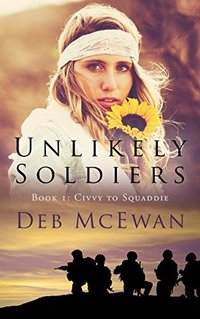 Unlikely Soldiers Book One: (Civvy to Squaddie)
Genre: Contemporary Romance, Historical Fiction, Women's Fiction, Teen & Young Adult
Unlikely Soldiers Book One: (Civvy to Squaddie)
Genre: Contemporary Romance, Historical Fiction, Women's Fiction, Teen & Young Adult
 Unlikely Soldiers Book Two:: (Secrets & Lies)
Genre: Action & Adventure, Historical Fiction, Women's Fiction
Unlikely Soldiers Book Two:: (Secrets & Lies)
Genre: Action & Adventure, Historical Fiction, Women's Fiction
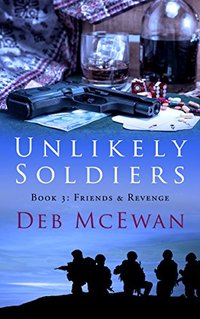 Unlikely Soldiers Book Three: (Friends & Revenge)
Genre: Action & Adventure, Historical Fiction, Women's Fiction
Unlikely Soldiers Book Three: (Friends & Revenge)
Genre: Action & Adventure, Historical Fiction, Women's Fiction
 Beyond Death: The Afterlife Series Book 1: (A Modern Ghost Story)
Genre: Supernatural Suspense, Paranormal Romance, Women's Fiction
Beyond Death: The Afterlife Series Book 1: (A Modern Ghost Story)
Genre: Supernatural Suspense, Paranormal Romance, Women's Fiction
